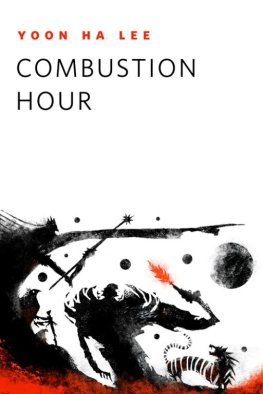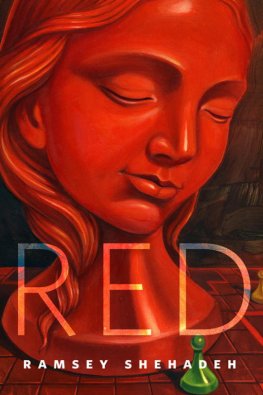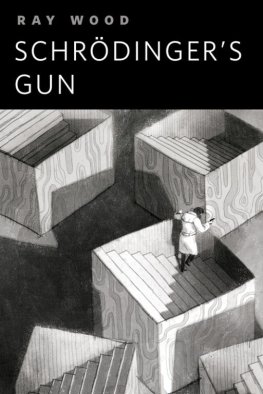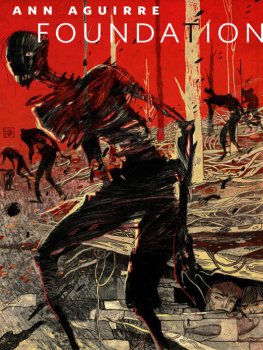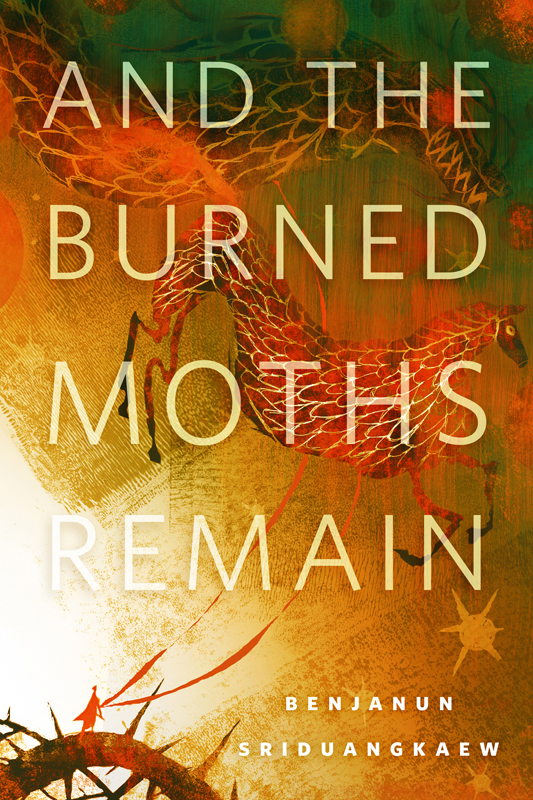Contents
Guide

The author and publisher have provided this e-book to you without Digital Rights Management software (DRM) applied so that you can enjoy reading it on your personal devices. This e-book is for your personal use only. You may not print or post this e-book, or make this e-book publicly available in any way. You may not copy, reproduce, or upload this e-book, other than to read it on one of your personal devices.
Copyright infringement is against the law. If you believe the copy of this e-book you are reading infringes on the authors copyright, please notify the publisher at: us.macmillanusa.com/piracy.
Contents
When the envoy comes, Jingfei is fighting herself in a duel to the death.
Jackknife paths and recoil slopes extend and retract, vector-walls forming and reforming to bring the combatants now tantalizing close, now infuriating apart. The arena moves with a predators intelligence, its heuristic array as much participant as battlefield.
The ground stinks of sweat and hemorrhage; neither waveform ceiling nor parabolic tiles have ever been cleaned. The stains are mortality, the weapon fragments a reminder: nothing lasts, nothing is forever. Not even, perhaps, an eternal prison sentence.
Jingfei, and Jingfei. Two shadows of equal height, equal might, similar mass. Their weapons too are twins: swords sculpted from the leavings of the fortress itself, shed shells from velocity shadows and sloughed nacre from iteration cycles. Over the lifetimes that have layered on top of another and condensed into an unbreakable edgesediment to diamondJingfei of Moth River has acquired many skills, though she chooses to neither use nor craft firearms. They are too fast, finish disputes too soon.
The duelists climb over warped bulkhead, in which reflections of knife edges dart and flash like schools of fish. In speed the two Jingfeis are equal. In skill, in experience, in their certainty of the others next movementattack and defense, parry and riposte, the idiosyncrasies of tactic and style. Beneath the carapace of their armor, under the brocade of their robes, perhaps their hearts heave to the same beat.
They have been engaged a long time, hours smearing, swarm-light rising and setting and rising again. One slows, slips, blunted by exhaustion. The other comes down upon her, momentum and desperation and need.
She does not find her markJingfei twists away, strikes back. Their blades meet and grip, one biting down on the other.
A tensile threshold is met. One blade shatters, a burst of shrapnel like pearls and lightning.
Jingfel kneels, slashes across with the light, consummate ease of habit. The throat opens, aorta protesting against loss. The sand-strewn floor absorbs spilled blood, but there are always blotches left behind, like careless calligraphy.
Jingfei falls; Jingfei rises, victorious. An audience of Jingfei roars applause from a thousand throats.
* * *
When the envoy comes, Jingfei is being decanted elsewhere in the citadel. She spills from a tank onto pale morass, raw and loose-limbed, wet hair and gurgling throat: newborn sounds and newborn-frail, though her thought and perception have accrued through years uncounted, and her arteries pulse with the strength of lifetimes multiplied. Replicants straighten and clean her, dress her in the silks and hairpins of her native land. They always make sure her clothes are extravagant, robes trimmed in the riches of defeated constituents, jeweled in the unique resources of annexed worlds. Her skin is bruised by swarm-light, striped tigerish. Cranes of metal and silicon lap up the waters of her birth. She never speaks and her motor control never develops.
The envoy is greeted by a boy of ten and an adolescent of no particular gender. The fortress seals behind the breach of her entry, tightening the vise of its shields.
Though the envoy arrives dragging questions like anchors and chains, existence cannot be answered in binary: on or off, alive or not. There are more than two states, and more than one may be concurrently true. Outside the swarm-fortress, Jingfei of Moth River has never been born, her past corroded and her name consigned to forgetting. Inside it, within the bounds of thorn-suns and briar-stars casting sequential dusks, Jingfei has been born a hundred times, a thousand, a million: a multitude of allotropic selves with a mind inviolate as it is divided from shell to shell, a flame passed from one wick to light the next.
She is called the seer, the oracle, the sibyl, though not for any ability of foresight or precognitionshe has none, and the Hegemony does not admit superstition. She is kept here for the sake of yesterdays rather than tomorrows.
When accuracy is prioritized over mythology, she is called the Record of Tiansong.
* * *
The arena empties, the spectators seats vacated one by one. In the absence of living bodies, the vastness of the floor runs like a cold hand down Jingfeis back. The scale was not meant for her, even so many of her; the fortress was created to accommodate millions, an experiment in sealed cities. But the Hegemony grew and conquered, and in time its prosperity made structures like her prison obsolete.
Now there is only one inhabitant. One inmate.
The duelist remains standing over her opponent, over the blots from her arteries, the unsightly discoloration where spilled guts have daubed the floor. There are runnels where her blood, old and new, has congealed and caked, nearly as solid as resin. Her foot nudges the fallen body, stirs the coils of dark hair that she always wears shoulder-length. She should be used to it is used to itbut though experience transfers there is always an instinct underneath, a reflexive displacement to see herself lying down dead as she continues to breathe, even with the knowledge that she dealt the fatal blow.
She wipes away the brittle sheen of her sweat, casts off gloves crusted in salt, peels away her outer robe stained in gore. They land, wet, on blood still hot as she lifts her head to the envoy.
Would it be tactless, the visitor says, to ask why you were fighting yourself?
For sport, for thrill, for justice. You mustve read my file. Do I strike you as someone whod tolerate her own company well? Its a wonder this doesnt happen more often. What did you say your name was?
The boy and adolescent, Jingfei both, do not make the joke of answering their other self. The envoy puts her hand to her chest. I am Damassis of Iron Gate, formerly Damassis Ingmir.
Three pairs of eyes train on Damassis, sniper-focused. She is the Hegemonic ideal brought to animation: avian-sharp skull and cheeks, a high narrow nose, a complexion with the undertone of pearl rather than Tiansong ivory. Her ancestry is unmistakable, each pump through her veins conquerors blood, each whipcrack of her heart the roar of warships. The boy says, You would submit to bearing a Tianhua clan-name? Youve taken a wrong turn, envoy; you didnt invade us to assimilate into our culture. Allow me to map your path back to proprietydye Iron Gate the colors of Ingmir, and make your children and theirs take your name. Thats the correct order of things.
Its no wound to my honor or personhood to wear this name. I keep it with pride.
Did you come by it through adoption? Marriage?
Love has made me nave. Damassis unwinds a chain from her throat, alloy dense as neutron stars, each link refraction-etched with verses from Tiansong plays. She pulls down from her hair moths and butterflies of living resin, with compound eyes of event-horizon windows and antennae of meteor frost. Each object is priceless. I have brought gifts.





